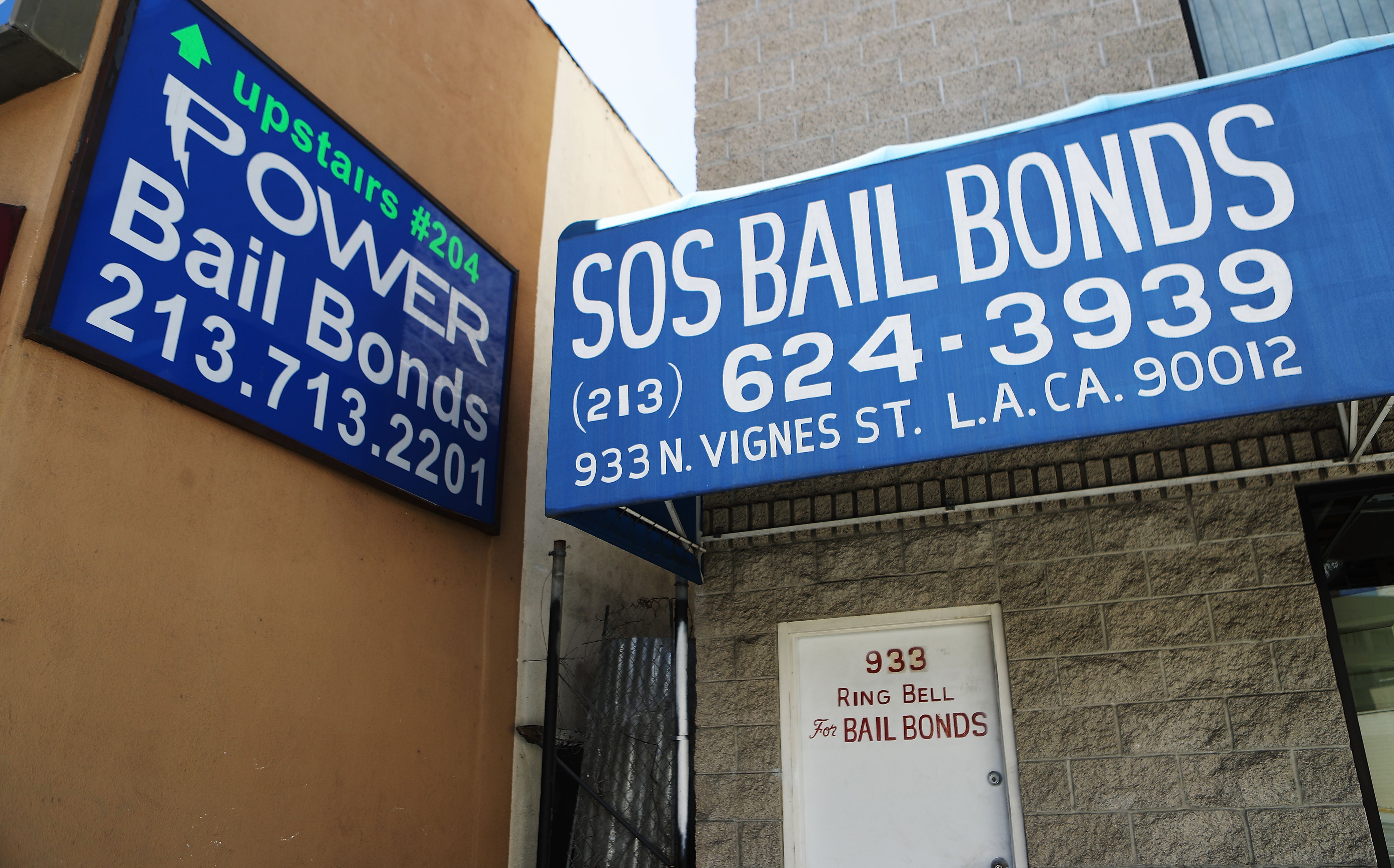Cash bail largely revoked in California
Civil rights advocates have said cash bail biases the justice system against poor people

Your support helps us to tell the story
From reproductive rights to climate change to Big Tech, The Independent is on the ground when the story is developing. Whether it's investigating the financials of Elon Musk's pro-Trump PAC or producing our latest documentary, 'The A Word', which shines a light on the American women fighting for reproductive rights, we know how important it is to parse out the facts from the messaging.
At such a critical moment in US history, we need reporters on the ground. Your donation allows us to keep sending journalists to speak to both sides of the story.
The Independent is trusted by Americans across the entire political spectrum. And unlike many other quality news outlets, we choose not to lock Americans out of our reporting and analysis with paywalls. We believe quality journalism should be available to everyone, paid for by those who can afford it.
Your support makes all the difference.The California Supreme Court on Thursday struck down large parts of the cash bail system in the state.
“The common practice of conditioning freedom solely on whether an arrestee can afford bail is unconstitutional,” the justices wrote in a unanimous decision.
A growing chorus of civil rights advocates have been pushing to end the cash bail system, where people who have been arrested and put in detention can temporarily give up bail money or other forms of property and be released until their trials, arguing the practice is prejudiced against poor people and people of colour.
Today’s ruling didn’t end the practice entirely, but rather requires judges to consider a defendant’s ability to pay bail before setting it. Bail rates are often fixed in the tens and hundreds of thousands of dollars, so the decision will effectively mean many poor people will be free to go unless they’ve been deemed notably threatening to public safety.
The decision also pointed to a broader reduction in the use of bail, noting that courts “must first find by clear and convincing evidence that no condition short of detention could suffice” for cases where the suspect poses a risk to public safety. Non-detention alternatives, the decision explained, could include electronic monitoring, check-ins with law enforcement, and orders for defendants to shelter in one location.
Read more:
Civil rights advocates celebrated the decision.
“Hallelujah!” Democratic state Sen. Robert Hertzberg told the Associated Press. “Cash bail is unjust, and what the court made clear is that cash bail does not work. It does not make us safer, it wastes taxpayer money, and it is discriminatory. We still have more to do, but this is a great day.”
California voters rejected a November ballot initiative that would have ended cash bail, and there are currently bills in the state’s Assembly and Senate to set bail at $0 for low-level felonies and misdemeanours.
Some have argued that adding in considerations of someone’s ability to pay bail as part of the pre-trial process violates state law. In 2008, California voters approved what’s known as Marsy’s Law, which laid out conditions, including victim safety, the state must consider when setting bail.
“The money bail is there to ensure that they do come back for their trial date, and they’re incarcerated to protect the victim or the public,” Kymberlee Stapleton of the Criminal Justice Legal Foundation, which filed a friend of the court brief arguing against eliminating cash bail, said in a statement to the AP after the decision. ”It’s hard to tell what impact this will have on victim and public safety going forward.”
The case began when 66-year-old Kenneth Humphrey of San Francisco, who is now out jail, couldn’t post a $350,000 bail charge after threatening and stealing $7 and a bottle of cologne from a disabled neighbour in a senior housing complex in 2017. His bail was initially set at $600,000.
Join our commenting forum
Join thought-provoking conversations, follow other Independent readers and see their replies
Comments